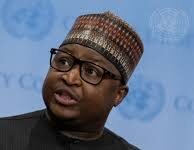By Amin Kef (Ranger)
ZoodLabs, a company once celebrated for bringing high-speed internet services to Freetown through its wireless broadband network, now finds itself at the center of controversy. Initially praised for its role in the country’s technological advancement, the company is now under intense scrutiny following repeated internet disruptions that have plagued Sierra Leone since ZoodLabs took control of the Cable Landing Station in December 2020.
The Cable Landing Station, a crucial piece of infrastructure for Sierra Leone’s internet connectivity, was entrusted to ZoodLabs following an agreement ratified by Parliament on April 28, 2022. The company’s mandate was to manage and upgrade the facility, which is vital for maintaining stable and efficient internet services across the country.
However, stakeholders and citizens alike have raised serious concerns about ZoodLabs’ capacity to fulfill its obligations. Since taking over from the Sierra Leone Cable Company (SALCAB), the company has faced repeated service disruptions, sparking demands for a thorough investigation into the root causes and ZoodLabs’ overall management of this essential service.
Sources close to ZoodLabs have revealed troubling details about the company’s operations. Despite pledging to invest $20 million in upgrading the outdated equipment at the landing station, ZoodLabs has allegedly failed to follow through on this commitment. Instead, the company has reportedly relied on bank loans and payments from Mobile Network Operators (MNOs) and Internet Service Providers (ISPs) to keep its operations afloat. Further compounding the issue, ZoodLabs exhausted the Le6 billion in seed money inherited from SALCAB within just one month.
Allegations have also emerged against ZoodLabs’ Founder and CEO, Davar Fazaeli and his associate, David Tamba Kpakima, who are accused of using their Government connections to secure the deal with SALCAB. Reports suggest that the pair have since acquired luxury vehicles, including a $150,000 customized G-Wagon Mercedes-Benz, allegedly financed with Government funds.
The controversy surrounding ZoodLabs has intensified as the company continues to face criticism for its unfulfilled investment promises and the alleged misuse of funds. Although ZoodLabs pays $450,000 annually to the Government as a lease for the landing station, this amount is reportedly far less than the company’s monthly revenue, raising questions about the fairness and transparency of the deal.
The decision to unbundle SALCAB came under fire, with the Ministry of Finance expressing opposition through a letter from the then Financial Secretary, Sahr Jusu. As scrutiny intensifies, there is a growing demand for ZoodLabs to honor its original promise to invest $20 million in upgrading the landing station’s equipment—a commitment seen as the bare minimum for ensuring Sierra Leone’s digital future.
The situation reached a tipping point on Sunday, August 4, 2024, when a significant outage occurred, lasting nearly four hours and severely impacting data services, international voice calls, roaming and other operational services. While the issue was eventually resolved, the disruption affected not only Sierra Leone but also neighboring Liberia. However, unlike their Liberian counterparts, ZoodLabs failed to communicate the extent of the problem to the public, further eroding trust in the company’s ability to manage the nation’s connectivity.
In response to the outage, the National Communications Authority (NatCA) convened an emergency meeting on Monday, August 5, 2024. The meeting, which included key stakeholders such as ZoodLabs, Leonecom, major MNOs and ISPs, focused on establishing a robust short-term redundancy plan to restore and stabilize connectivity. Discussions also addressed the need for alternative routes to enhance the resilience of internet services in the region.
As the investigation into ZoodLabs’ management continues, there is a growing demand for transparency and accountability. The people of Sierra Leone are calling for answers—and for the company to finally deliver on its promises to safeguard the country’s digital infrastructure and restore trust in its services.




